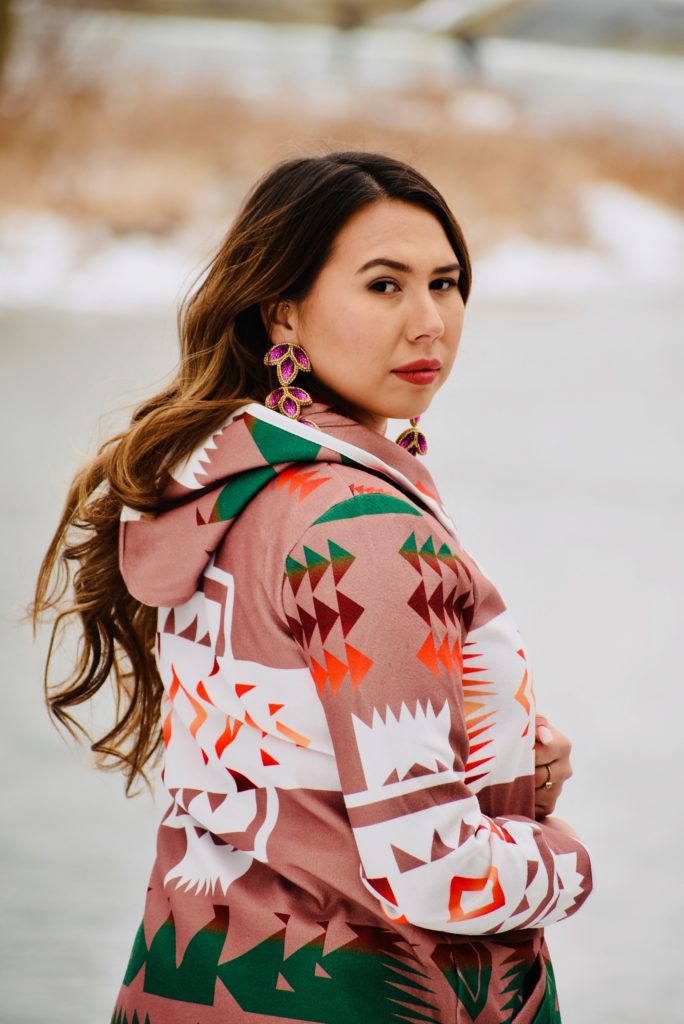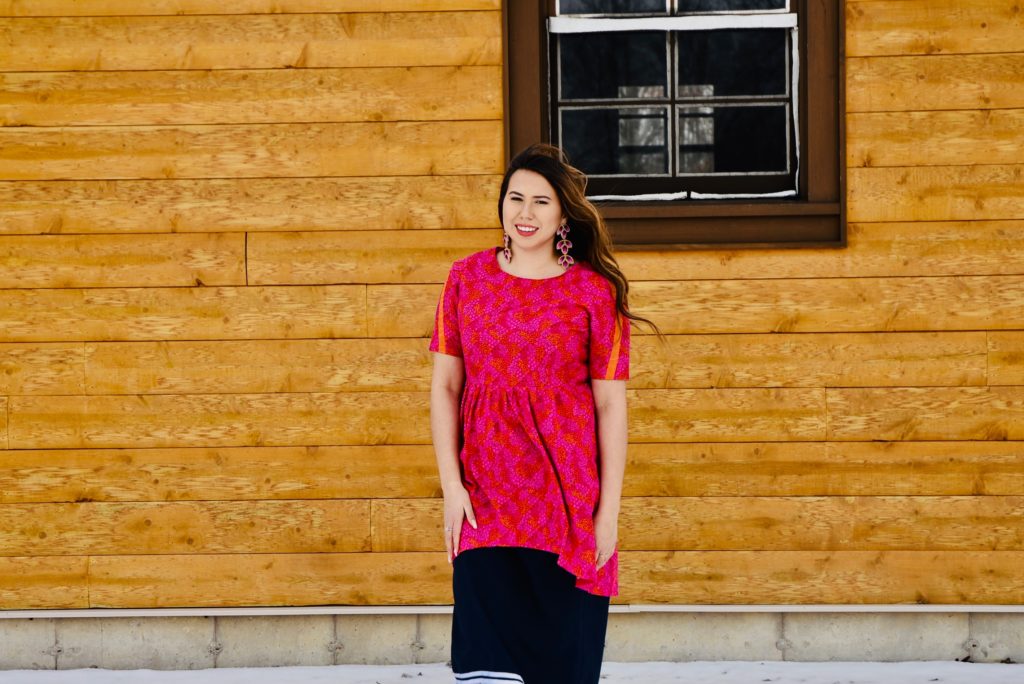
Makaśa Looking Horse
Why I took on Nestlé
By Makaśa Looking Horse

Makaśa Looking Horse
Fights for Clean Water
My Mission to Stop Nestlé
I took on Nestlé because I wanted to protect our water. When I found out that Nestlé was taking 3.6 million liters out of our Six Nations aquifer without our permission, I made it my mission to ensure that my Mohawk community knew what was happening.
Nestlé obtained a permit to take our water from the Ontario Ford government for a small price of about $500. That is pocket change compared to what they are making in profit.
Nestlé’s presence on our land causes permanent harm to our people and Mother Earth. It takes approximately 10,000 years for water to filter through the ground and form an aquifer as pure as ours. The damage extends beyond the water though and includes the plastic pollution that is caused by every single plastic bottle of water they produce.
“I took on Nestlé because
I wanted to protect our water.”
Plastic pollution is also a huge problem. There are studies that show microplastics are now found in babies’ placentas. On so many levels it is a very bad situation and this is nothing new for Nestlé. Nestlé is notorious for taking water from Indigenous communities, but it is not only Indigenous communities. They take water from all over the world including Brazil, Canada, parts of Africa and the State of California. They repeatedly disrespect the water and the people on whose lands the water resides.
Why I Organized My Community
I was determined that my community be completely aware of what Nestlé was doing on our land. I hosted a run from the school in the middle of Ohsweken to the Medicine House by the river. We ran to raise awareness and to carry the message that we as a community oppose Nestlé taking our water.
It was important to raise awareness because we, the Indigenous people of Six Nations, should always be at the table when the health of our water is at stake. We should have a say about the permits and our own water is governed. The reality is that we are rarely included in these conversations.
Our nation has made treaties with Canada and those treaties do not say that they have ownership of the water, there is only reference to the land, which means that they don’t have any say over how we care for our own waters.
Our treaties are not the only reference to our right to govern our own water. Canada adopted the United Nations Declarations of the Rights of Indigenous Peoples (UNDRIP) in 2016 and it says that we are able to govern our water.
Promises by the Canadian government are not being honored. Trudeau promised in 2015 that all Indigenous communities would have access to clean drinking water and that has yet to happen. Minister of Crown-Indigenous Relations, Carolyn Bennett, has also made promises to help communities get clean drinking water and this too has not taken effect.
Our voices continue to be excluded from these huge tables governing our water and we need to be at those tables.

How I Served Nestlé a
Cease and Desist Letter
After the first run to raise awareness, I got a coach bus to continue to make our voices heard. The Wellington Water Watchers helped fund this and they have shown up multiple times in support of our cause.
I received official support from the Haudenosaunee Confederacy and I organized a protest to deliver a Cease and Desist letter to Nestlé.
I read the letter to Nestlé on a speakerphone surrounded by Clan Mothers and around 500 other people and community members who were also there in support.
Our ask was clear and there was no way that Nestlé did not know our position. I asked them to stop taking our water, to move off of our land and to move their water bottling plant.
The Fight Continues
Our actions and statements made a difference and Nestlé has left Canada. Other water bottling plants are also less likely to move onto our land because of the pushback of the community and the protests that I’ve held.
The fight is not over though. The Clan Mothers want Nestlé to pay back — in some way — the water that they took over the years. Whether that is in the form of water or payment, they want reparations to be made. Personally, I don’t know if it is possible to give back the equivalent of what they have taken because the water from the aquifer can never be restored.
The water bottling plant where Nestlé operated is still there and the surrounding town has said that they want to take ownership of it. I disagree with this because the land and whatever is on it should go back to Six Nations. It is ours in the first place. It is what I want and also what the Clan Mothers want. The land and the water in question is rightfully ours in every way, shape and form and it is up to Six Nations leaders to decide the path forward.
“The land and the water
in question
is rightfully ours.”
The Bottom Line
We need more people, Indigenous and non-Indigenous, to be advocates for us and show-up at the decision-making tables in support of clean water and the rights of First Nations communities.
The water crisis is urgent because water has been commodified in the same as oil and gas on Wall Street. It is a very scary world and this is a very scary reality. It is important to raise our voices around the issues of water governance and water health. We have to do everything we can to save our water and make sure that it remains accessible to everybody.
If you’re rich or if you’re poor or whatever your living circumstances, it’s a human right to have clean drinking water.

Author Bio
Makaśa Looking Horse was born on Six Nations territory and is Mohawk and Lakota. She has completed Lakota and Mowhak rites of passage ceremonies known as Ishnati and Ohero:kon. She has been a Sundance leader for the women for 11 years and is most known for her activism with Six Nations on water security. She has held many protests fighting for clean water for her community and has worked alongside traditional government including by handing Nestle a Cease and Desist Letter on behalf of the Confederacy.
Looking Horse has completed the Six Nations Traditional Medicine Practitioners course and is currently a student at McMaster University. She is Youth Leader of Global Water Futures, Ohneganos, where she is now the host of a live streamed vodcast series called Ohneganos: Let’s Talk Water. She has presented and led blessings and ceremonies at numerous local and global forums including as a member of the United Nations Global Youth Caucus at the United Nations Climate Summit.